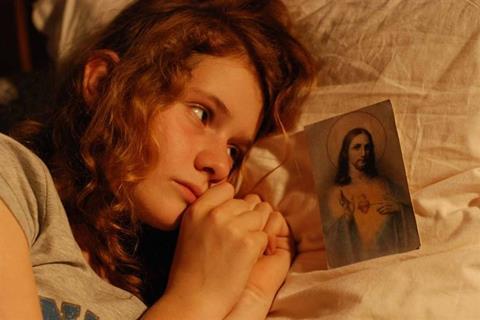Dir: Katell Quillévéré. Fr. 2010. 92mins

Small communities, Catholicism and burgeoning sexuality - it’s a classic, some might say over-familiar, combination in French debut features. But it’s rarely carried off with such confidence and subtlety as in Love Like Poison, Katel Quillévéré’s superb drama, which has already won the 2010 Jean Vigo Prize for first features.
The film’s sheer command, and the candid central performance by promising newcomer Clara Augarde, will win the film equal support from critics and audiences on the festival circuit
Given the low-key quality of the narrative, there’s nothing obviously commercial in the film, apart from the presence of two stalwart names with some mainstream cachet - Lio and veteran comic actor Michel Galabru. But the film’s sheer command, and the candid central performance by promising newcomer Clara Augarde, will win the film equal support from critics and audiences on the festival circuit, which should help it to respectable sales in a select art-house bracket.
Fourteen-year-old Anna (Augarde) has returned from boarding school to her village in Brittany, where she lives with her mother Jeanne (Lio) in the house of her elderly, ailing paternal grandfather Jean (Galabru). Anna’s father Paul (Neuvic) is absent - he turns up only late in the film - as he and Jeanne have broken up.
One gap between them, it seems, is Jeanne’s committed Catholicism, which Paul doesn’t share and has only recently become a problem for them. Things are complicated by the increasingly depressed Jeanne’s attraction to easy-going young village priest Père François (Cassetti). Anna, meanwhile, is caught between her own religious convictions - she’s due for her confirmation - and her teenage sexual stirrings, which are awakened by choirboy Pierre (Leboulanger-Gourvil), a precocious squirt who’s in a hurry to get beyond best-friend stage.
Not a great deal happens, but when it does, it means a lot: two funerals, a couple of faintings on Jeanne’s part, and a genuinely tense moment between Jeanne and François in which it looks as if he’s going to have to do some soul-searching and fast.
There are also some delicate, but boldly handled, scenes of exploratory physicality between the two kids, which Augarde and the engaging Leboulanger-Gourvil carry off fearlessly, but with just the edge of nervousness that the material calls for.
Galabru, generally associated with broader material, brings an imposing sense of crumbling physicality - it’s anything but a vain performance, given the actor’s age and girth - and has a good time as a blustering rager against piety. Some unsettling sexually-charged scenes between the old man and Anna are carried off with a shrewdly judged tone that shows how much Quillévéré is on top of her material.
The film is beautifully shot by Tom Harari, who captures faces and the Breton landscape with equal sensitivity, and a very individual soundtrack includes English folk songs, church choirs and a highly unconventional Radiohead cover over the end credits.
Production companies: Les Films du Bélier
French distribution: Sophie Dulac Distribution
International sales:
Films Distribution (33) 1 53 10 33 99
Screenplay: Katell Quillévéré, Mariette Désert
Producer: Justin Taurand
Cinematography: Tom Harari
Editor: Thomas Marchand
Production designer: Anna Falguères
Music: Olivier Mellano
Main Cast: Clara Augarde, Lio, Michel Galabru, Stefano Cassetti, Thierry Neuvic, Youen Leboulanger-Gourvil




















